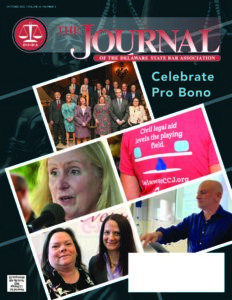I’ve been working in legal aid since 2014 and, until I came to CLASI, exclusively for domestic violence legal services. I was originally working in south-central PA before moving on to Philly in 2016, so I’ve seen the harm that an unjust legal system does to both rural, predominately white populations and on urban people of color. The common through-line here is that if you don’t have access to money and/or power, the civil legal system is so inaccessible and labyrinthine that justice is unattainable for too many.
At the risk of exposing myself as a proletariat snob (is it too soon in my CLASI tenure for that?), my motivation to become a legal aid attorney is based in frustration with the harm caused by the class system. Destroying the injustice that’s the flip side of privilege has always been a bit of my white whale. I left college in the middle of the Great Recession and didn’t really know what to do with my fervent desire to tear down the entire capitalist structure. And since I’m a little too chronically introverted and social media averse to be a good community organizer, law school seemed the way to go. Legal aid is, to me, a way to bridge the gap in trying to achieve equity one client at a time within a deeply unjust system while someone smarter and more capable than me works on building another, better one using a foundation that doesn’t rest on some form of privilege. While the system is flawed at best and, in my opinion, broken, it’s the one we must operate in for the time being, and my hope is that I (and legal aid generally) can provide representation that both acknowledges those flaws and seeks to lessen their harm.
I came to CLASI mostly because Meghann O’Reilly Karasic poached me. Meghann was my boss when I was in south-central PA and after we both migrated to bluer pastures (ba dum tsssh), she kept telling me I should move over to CLASI and I finally decided it was time to branch out and do more besides DV-focused family law. The Medical Legal Partnership Program really attracted me because I was becoming discouraged that I was only able to assist with one area of a client’s legal need; namely family law, and would have to refer them elsewhere to assist with collateral legal issues, which didn’t guarantee case acceptance and could result in further trauma when client had to recount their situation again and again for each new legal issue/lawyer. The nightmare that the immigration system has become seemed like another great opportunity for me to tilt at windmills and as a bit of a class warrior, I do love being in a union. So far it seems like a good call (fingers crossed).
I would normally say that tearing down the entire legal system and building it back up from scratch would be my ultimate goal for systemic change. But, in the more achievable alternative and the one that will benefit my clients in a real concrete way, I think that getting legal system stakeholders, especially those with power and privilege, to understand how injustice has been built into the legal system and how its perpetuated and then securing their partnership in trying to work towards a more just and equitable system is my current systemic goal. I’m not, at my core, a person who’s any good at achieving long term, structural change, and tend to prioritize seeing immediate results to urgent problems (getting a PFA, keeping custody, gaining legal status) rather than investing in something that may instead benefit a client 20 years from now (remodeling the legal system to remove the privilege and injustice).
If it wasn’t already obvious, righteous fury keeps me motivated to continue doing this work. That and caffeine. Thanks for coming to my TEDtalk.
